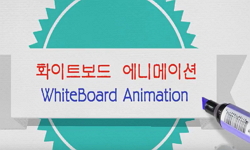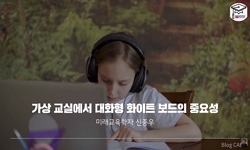본 논문의 목적은 화이트의 ‘주관주의적 잘삶관’에 근거한 교육목적이 갖는 의미와 시사점이 무엇인지 탐구하는 데 있다. 화이트는 개인의 의견을 중요하게 여기는 ‘주체관련성’을 근...
http://chineseinput.net/에서 pinyin(병음)방식으로 중국어를 변환할 수 있습니다.
변환된 중국어를 복사하여 사용하시면 됩니다.
- 中文 을 입력하시려면 zhongwen을 입력하시고 space를누르시면됩니다.
- 北京 을 입력하시려면 beijing을 입력하시고 space를 누르시면 됩니다.
https://www.riss.kr/link?id=T15342939
- 저자
-
발행사항
서울 : 서울교육대학교 교육전문대학원, 2019
-
학위논문사항
학위논문(석사) -- 서울교육대학교 교육전문대학원 , 초등교육과정전공 , 2019. 8
-
발행연도
2019
-
작성언어
한국어
- 주제어
-
KDC
370.1 판사항(6)
-
발행국(도시)
서울
-
기타서명
J. White's theory of education : focused on informed-desire and ethical values
-
형태사항
v, 56 p. ; 26 cm
-
일반주기명
참고문헌: p. 51-52
-
UCI식별코드
I804:11031-200000225352
- 소장기관
-
0
상세조회 -
0
다운로드
부가정보
국문 초록 (Abstract)
본 논문의 목적은 화이트의 ‘주관주의적 잘삶관’에 근거한 교육목적이 갖는 의미와 시사점이 무엇인지 탐구하는 데 있다. 화이트는 개인의 의견을 중요하게 여기는 ‘주체관련성’을 근거로 잘삶을 논할 때 개인의 욕구가 고려되어야 한다고 본다. 이때 개인이 문화 공동체의 윤리적 가치와 관련된 ‘검증된 욕구’를 형성하고 충족할 때 잘삶이 가능하다. 화이트가 보기에 교육은 학생들이 검증된 욕구충족을 할 수 있도록 돕는 방향으로 이루어져야 한다.
화이트의 논의는 개인의 선호와 무관하게 합리성을 객관적인 선으로 추구하는 피터즈와 허스트의 ‘객관주의적 잘삶관’에 근거한 자유교육론에 대한 대안적 관점을 제시한다. 그들의 교육론은 인간의 합리성을 객관적인 선으로 규정하며 교육에서 합리성 추구를 목적으로 삼고, 지식의 형식의 전수를 위해 교과교육을 강조한다. 화이트는 합리성에 대한 지나친 강조로 인해 교육에서 인간의 삶, 그리고 욕구에 대한 관심이 줄어들었다는 문제를 제기한다. 주관주의적 관점에서 잘삶을 바라보는 화이트에게, 잘삶은 삶의 주체인 개인이 갖고 있는 관심에 의존할 수밖에 없는 것이다. 화이트에 따르면, 이러한 주체 관련성은 자유주의 사회에서 중요한 삶의 기준이 되며, 교육에도 반영되어야 한다. 삶의 가치를 삶의 주체인 ‘나’로부터 찾을 때 비로소 개인에게 좋고, 만족스러운 삶을 영위할 수 있다.
화이트의 교육론에서 ‘검증된 욕구’(informed-desire)와 ‘윤리적 가치들’(ethical values)은 그의 교육론의 핵심 주장을 보여주는 개념이다. 검증된 욕구란 욕구의 대상에 대한 올바른 경험적 정보에 근거하며 논리적 오류가 없는 욕구로서 사회나 문화에 의해 정제되고 걸러진 욕구이다. 윤리적 가치들은 우리가 교육을 통해 학생들에게 길러 주고자 하는 기본적인 가치로, 곧 사람됨의 성향을 의미한다. 이러한 윤리적 가치는 우리의 공동생활을 위한 틀을 제공해준다. 욕구는 윤리적 가치들로부터 도출되었을 때 검증된 욕구이며 잘삶과 관련이 있게 되므로 교육목적은 윤리적 가치와 관련되어야 한다. 화이트는 지식이 잘삶의 실현과 관계가 있을 때에 정당화될 수 있다고 보며, 교과에 관한 논의보다 잘삶을 가능하게 하는 가치에 대한 논의가 선행되어야 한다고 본다. 지식교육의 방향을 찾기 위해서는 교육에서 학생에게 가르치고자 하는 인간됨의 가치, 윤리적 가치가 무엇인지 문화 공동체 안에서의 논의가 필요하다. 그는 지식을 윤리적 가치와의 관계를 기준으로 삼아 ‘구성적 지식’, ‘도구적 지식’으로 나누며 학생의 잘삶의 실현에 밀접한 관련이 있는 지식을 학교에서 교육해야 한다고 주장한다.
화이트의 교육론은 검증된 욕구 충족을 돕기 위해 학교의 교육내용 선정에 있어, 학생들의 삶과 밀착된 지식에 우선순위가 주어져야 함을 시사한다. 윤리적 가치에서 도출되는 지식교육은 지식의 형식에 근거한 지식교육과 교육의 모습이 다르다. 윤리적 가치들을 위해 필요한 지식은 바로 우리 자신, 타인, 그리고 우리가 살고 있는 공동체 등에 관한 것이다. 화이트가 보기에 학교교육에서 수학이나 과학보다 더 중시해야 하는 지식은 인간의 삶과 관련된 ‘인문학’(the humanities)이다. 그는 서로 분할된 몇 개의 학문적 교과로 구성되어 있는 전통적 교육과정에 대해 납득할 만한 정당성을 찾기 힘들다고 보며, 교육과정이 학교 교과가 아닌, 인간의 잘삶에서 출발하여 구성되어야 한다고 주장한다.
화이트에 의하면 국가교육과정은 ‘사람됨의 자질’(personal qualities)인 윤리적 가치에 초점을 맞춰야 한다. 지식의 선정은 윤리적 가치와의 관련성에 비추어 결정되어야 한다. 여기서 그가 의미하는 윤리적 가치는 감각적 쾌락, 친밀성, 다양한 덕목, 가치순위에 대한 반성 등 인간의 삶에서 필요하고 추구해야 하는 일상적인 가치와 다르지 않다. 이와 같은 윤리적 가치에서 도출되는 교육은 학생의 삶과 직접적으로 연관되며 학생의 잘삶의 실현을 돕게 된다.
화이트의 교육론은 교육목적 논의를 지식보다 우선성이 있는 가치차원으로 확대할 필요성을 제기하고, 욕구를 교육적 논의의 중심 개념으로 끌어들이며 교육에 변화를 요청한다. 검증된 욕구 충족을 위한 교육은 학생들의 행복한 삶에 직접적인 관심을 가지고 그것의 실현을 위한 교육방법을 논의하며, 현재 교육이 학생들의 잘삶에 도움을 주지 못한다는 문제에 대한 해결의 실마리를 제공하는 의의가 있다.
다국어 초록 (Multilingual Abstract)
The purpose of this study is to explore meanings and implications of J. White's theory of education which is based on 'subjective viewpoint’ of personal well-being. White argues personal desires must be included in the definition of well-being. This...
The purpose of this study is to explore meanings and implications of J. White's theory of education which is based on 'subjective viewpoint’ of personal well-being. White argues personal desires must be included in the definition of well-being. This is because he values 'subjective-relativity' which means personal opinions should be considered seriously when it comes to the definition of an individual’s well-being. White argues that personal well-being can be achieved only when an individual has formed 'informed-desire' which is related 'ethical values' of cultural community. In his point of view, school education should be done in the direction of helping students to be introduced to ethical values, so that they can form their desires as informed-desires.
White proposes an alternative educational theory to Peters and Hirst's liberal education which is based on 'objective viewpoint’ of personal well-being. Their educational theory defines rationality as ‘objective goodness’ and pursue it as an aim of education. The emphasis on rationality leads to teaching subject matters as they represent different kinds of ‘form of knowledge'. White argues such stress on rationality causes less consideration for real life experience and personal desires in education. White, who interprets well-being from the subjective point of view, ‘subject-relativity' is important value to the liberal society and must be reflected in education as well. An individual can have a good and satisfied life only when he searches the value of life from himself, who is the subject of his life.
'Informed desires' and 'ethical values' are two concepts which represent the main idea of J. White's educational theory. Informed desires are desires which are based on sound empirical information about their object and avoid logical confusion. Ethical values are the fundamental values of one’s way of life, and provide the framework for common life. Desires can become 'informed' desires when they are derived from ethical values. Since only informed desires can help the realization of personal well-being, schools must aim to internalize ethical values in students as they are the key factors of personal well-being.
Acquiring knowledge is an indispensable part of any education. However, it's connection with the values which form the starting point of education must be made clear. Therefore discussion of values which should be taught in school must be preceded before that of subject matters. White argues that there is no reason why mathematics and science should be elevated as 'core' subjects over curriculum activities which help us more directly to understand and orientate ourselves in the human world. The kinds of knowledge that ethical values require is about the human world in which we live. The ethical values of White, such as different types of physical pleasure, types of friendship, range of activities which may be chosen for their own sake and how to go about engaging themand so on, are not so different from values we appreciate in our daily lives. He stresses that school education should focus on teaching knowledge about ourselves, other people, and the communities which we live in. Therefore, more importance should be placed on ‘the humanities’ since its direct connection to the exploration of ethical values.
White divides knowledge into 'constitutive' and 'instrumental' knowledge according to the way it is related to the ethical values. He also suggests there are two types of knowledge: attached and detached. If the knowledge is closely related to an individual's desires and needs, it is ‘attached’ knowledge. When schools educate ‘attached’ knowledge, they can help students to achieve personal well-being as the education can be related to students’ lives. Constitutive knowledge which should become attached to students can help them to form the values they need and should attain to live in a society. Attached instrumental knowledge can help students fulfill their current desires.
J. White’s theory of education can shed some light on the education system by changing it to be more helpful to students’ happier lives. White’s study provides the philosophical basis of learner-centered education by placing its emphasis on the promotion of subject-regarding well-being as the primary education aim. His view has very important suggestions in regard to our curriculum development.
목차 (Table of Contents)
- Ⅰ. 서 론 1
- Ⅱ. 교육목적으로서의 잘삶: 객관주의적 관점 7
- 1. 피터즈의 교육목적: 합리성의 추구 7
- 2. 객관주의적 관점의 특징과 한계 16
- Ⅲ. 교육목적으로서의 잘삶: 주관주의적 관점 25
- Ⅰ. 서 론 1
- Ⅱ. 교육목적으로서의 잘삶: 객관주의적 관점 7
- 1. 피터즈의 교육목적: 합리성의 추구 7
- 2. 객관주의적 관점의 특징과 한계 16
- Ⅲ. 교육목적으로서의 잘삶: 주관주의적 관점 25
- 1. 화이트의 교육목적: 검증된 욕구충족 25
- 2. 초등교육에의 시사점 37
- Ⅳ. 요약 및 결론 47
- 참고문헌 52
- ABSTRACT 54












